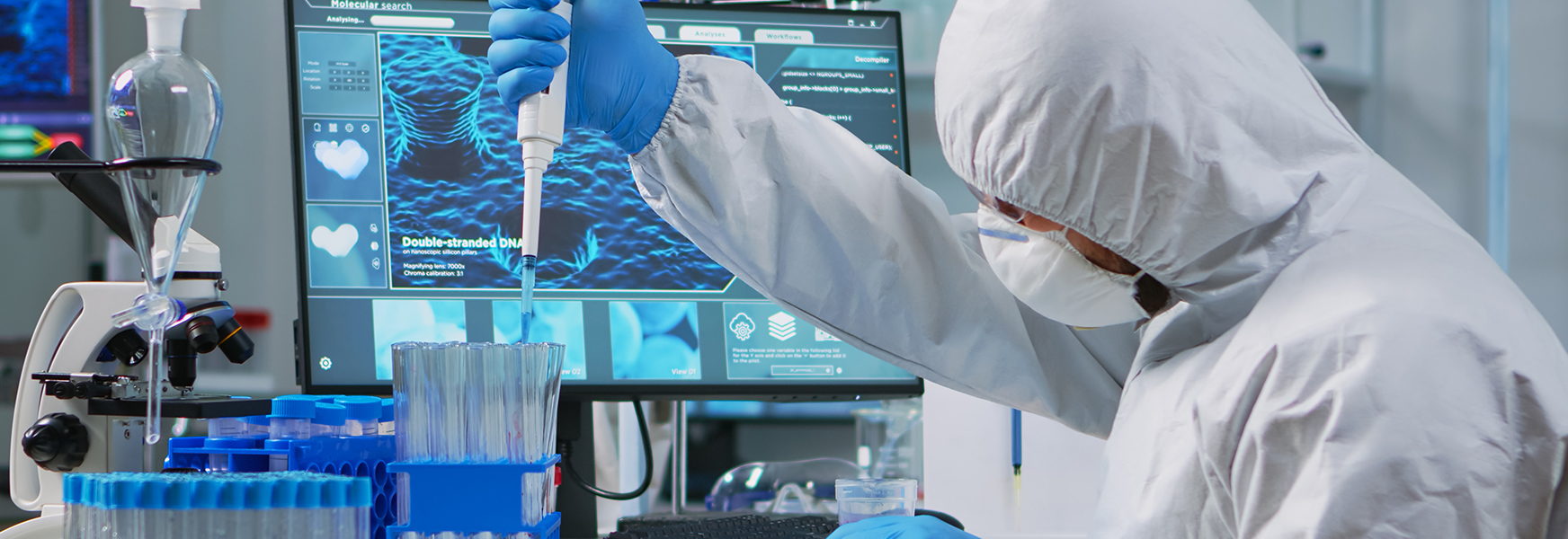COVID-19: Addressing Vaccination Hesitancy

SARS-CoV-2, the virus that causes COVID-19, is new, highly contagious, and can cause severe illness and death. Researchers and health officials have uncovered an astounding amount of information over the past year, and in record time have produced effective and safe vaccines. While many people are looking forward to immunity, there are also many that are “vaccine hesitant,” meaning that they do not intend to receive the vaccine. Refusing vaccination is not a new concept and has been recorded as far back as the 18th century smallpox vaccine. Even though we have access to significantly more sophisticated, science-based information, a December 2020 CDC survey on vaccination intent reported only 49.1% of the US population were certain or very likely to be vaccinated. As suggested in the study, “vaccinating a large proportion of persons in the United States against COVID-19 is critical for preventing SARS-CoV-2-associated [illness and death] and helping bring an end to the global pandemic.”
To decrease vaccine refusal, it is important to recognize and address the causes of vaccine hesitancy. Identifying those causes will require employers to be listeners. One-on-one or small group discussions facilitated by trusted leadership will allow open dialog and the opportunity to dispel fears using empathy and science-based information. This approach usually produces better results than demanding compliance.
The following addresses some of the concerns and questions about the COVID-19 vaccine that may be causing hesitancy.
I’m concerned about side effects: Like most vaccines, the COVID-19 vaccine is associated with several side effects ranging from mild fatigue and muscle aches to fever, vomiting, or diarrhea. Although these effects are generally greater after the second dose, they are usually short lived and indicate that your immune system is gearing up to fight off the COVID-19 virus. A very small percentage of people experience a more severe allergic reaction, but this usually occurs with people who have a history of anaphylaxis. Vaccination centers are prepared to immediately treat anaphylaxis, but if you have concerns or a history of allergic reactions, talk with your health care provider. For almost all of us, although uncomfortable, the side effects from the vaccine are much less bothersome than the severe illness and possible death that can be caused by the virus. Plan on a day off after your vaccine if possible, be kind to yourself, and cheer on your immune system.
I got the first vaccination (Moderna or Pfizer). Why do I need a second dose? Many vaccines require more than one dose to effectively stimulate an immune reaction (e.g., measles, mumps, and rubella). Dr Swaminathan explained to the World Health Organization that the first dose primes the immune system and the second dose gives it the boost needed to create a “T cell mediated response” which develops the immune system’s memory. A single dose of the COVID-19 vaccine is only about 52% effective but 95% effective after the second dose. CDC guidelines allow for up to 42 days between doses. If it has been longer, you will need to discuss this with your medical provider, but you should make every effort to get your full vaccination.
What about viral mutations? Dr Fauci, Director of the National Institute of Allergy and Infectious Diseases, said a key to reducing mutations is “vaccinating as many people as you can as quickly as you can”. He went on to add, “Viruses that love to mutate don’t mutate unless they replicate. If you can prevent them from replicating either by vaccination or public health measures, then you will diminish the potential of their mutating.” The longer a virus circulates, the more chance it has to mutate. New evidence suggests that the current Pfizer vaccine is effective against the new variants, providing even more incentive to receive the vaccine as soon as possible.
I’m concerned about cost: Currently, all vaccines are being provided by the federal government and are therefore free of charge. According to the CDC, providers can charge an administration fee that may be billed to your insurance; however, for anyone without insurance this fee will be paid by the Health Resources and Services Administration. No one can be denied a vaccine for inability to pay.
I’m concerned about needing to take time off: If possible, plan to get your vaccine when you are already scheduled to have the next day off. If this is not possible, talk to your employer about altering your work schedule to allow time to get the vaccine and recover from the side effects.
How can I trust the vaccine for my ethnic/demographic group? The safety and efficacy trials for this vaccine were conducted on a global platform with diverse study participants. The U.S. vaccines currently being distributed are the same for all groups (except vaccine specific age limitations). Pfizer-BioNtech, Moderna, and Johnson & Johnson all work slightly differently but are all effective in protecting against significant COVID-19 illness across all tested demographic groups.
It is important to combat vaccine hesitancy by acknowledging fears and replacing them with science-based facts. In this way we can improve workplace and community safety through greater population immunity to COVID-19. For additional information on this subject check out our previous post "COVID-19 Vaccines" or take a look at these resources: The American Medical Association, Johns Hopkins Medicine, and The Centers for Disease Control and Prevention.

